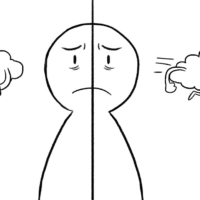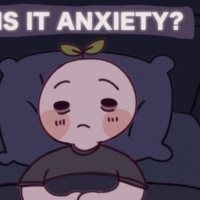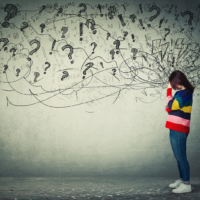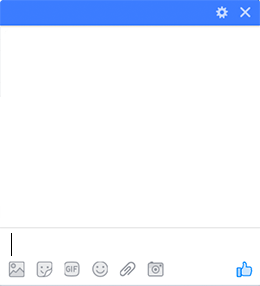Alcohol and Anxiety and Panic Attacks: The Link & Solution
Hi. I’m Lynette, from PanicAttackRecovery.com. Today we will be discussing a question that
came from a subscriber of the Panic Attack Recovery Newsletter. This subscriber asked the following: Is there a link between alcohol and panic
attacks? When responding to this question, we would
start by pointing out something that is commonly known: Alcohol can be used as a means of escape. It does make sense, then, that some people
are drawn to it, for this very reason. In our experience, some sufferers of panic
attacks do seem to be drawn to alcohol. And, there does seem to be a correlation in
some cases between alcohol and panic attacks. Consider the following: One group of researchers found a stronger
association, than what would be left to chance, between alcohol and panic attacks. They also found an overlap in the symptoms
of panic disorder, generalized anxiety disorder, and alcohol withdrawal. Another group of researchers indicated that
studies on alcoholic patients have found a higher-than-expected occurrence of panic disorder,
and suggest a positive correlation between the level of alcohol consumption and the severity
of anxiety. They also found an increased prevalence of
alcoholism among patients with panic disorder and their blood relatives.
A comparison of symptoms, and physiological and
neurochemical changes known to occur in both alcohol withdrawal and panic disorder, reveals
a degree of similarity between the 2 conditions. Based on the data, these researchers proposed
that the chemical and cognitive changes occurring as the result of repeated alcohol withdrawals
may kindle and condition the coincidence of panic attacks in susceptible individuals. It is very important to reach out for help
from a professional if you have a problem misusing alcohol. But, right now, we would like to share with
you some promising information.
Another group of scientists found that those
with co-occurring alcohol dependency and panic disorder were helped by Cognitive Behavioral
Therapy (CBT). When trials were conducted after 30 days,
both the number of individuals meeting the criteria for panic disorder and the number
of individuals meeting the criteria for alcohol dependency had decreased. At PanicAttackRecovery.com, we recommend that
anxiety sufferers, particularly those who have not considered CBT, give it a shot. In a nutshell, the process of CBT involves
the following: #1 Locating the cognitive distortions that
may be causing your anxiety and panic attacks #2 Replacing these distortions with healthier
and accurate thoughts, that can make you feel better If you would like more information of CBT
being applied in specific examples, feel free to visit our website. There you can also obtain specific references
to the research mentioned in this video..
ᵛᶦᵈᵗᵒᵒⁿ™ ².¹ ᴏɴᴇ ᴛɪᴍᴇ ᴏꜰꜰᴇʀ – ᴛʜᴇ 2ᴅ ᴀᴍɪɴᴀᴛɪᴏɴ ᴠɪᴅᴇᴏ ᴍᴀᴋᴇʀ After The Massive Success Of VidToon™ 1.0
And More Than 10ᴋ Happy Customers…WE ARE BACK ON Popular Demand! Redefine Profitability With The World’s Easiest & Most Popular Video Animation Software It’s ʙɪɢɢᴇʀ. ʙᴇᴛᴛᴇʀ. ᴀɴᴅ ꜰᴀꜱᴛᴇʀ.
















